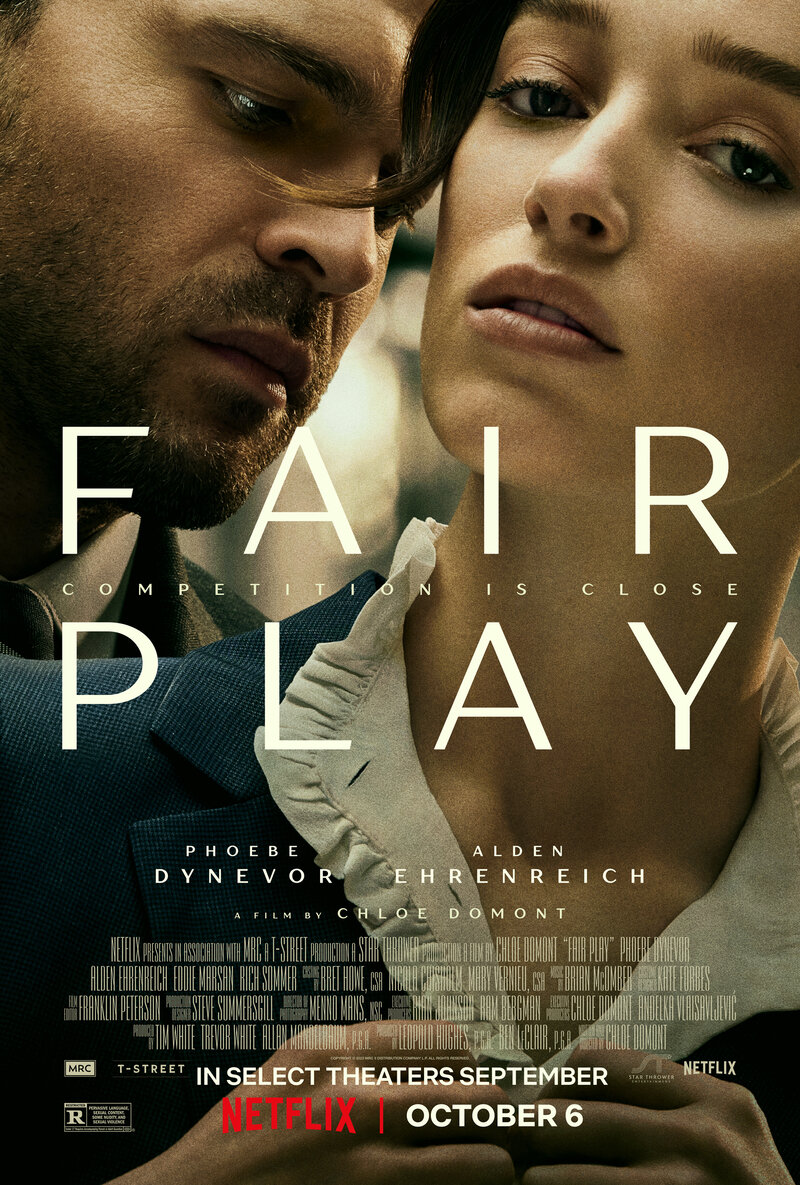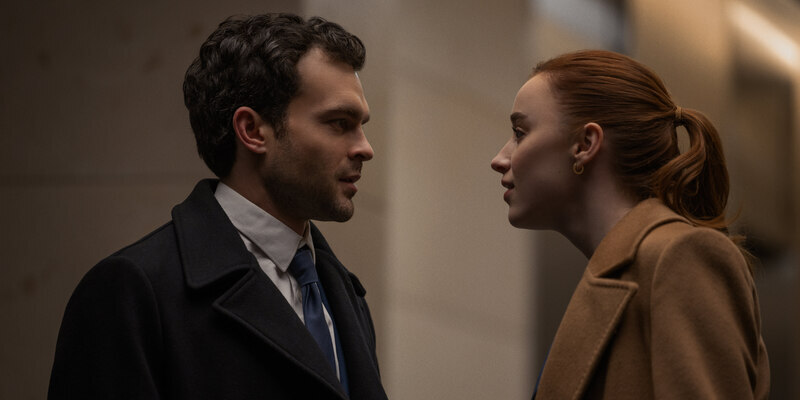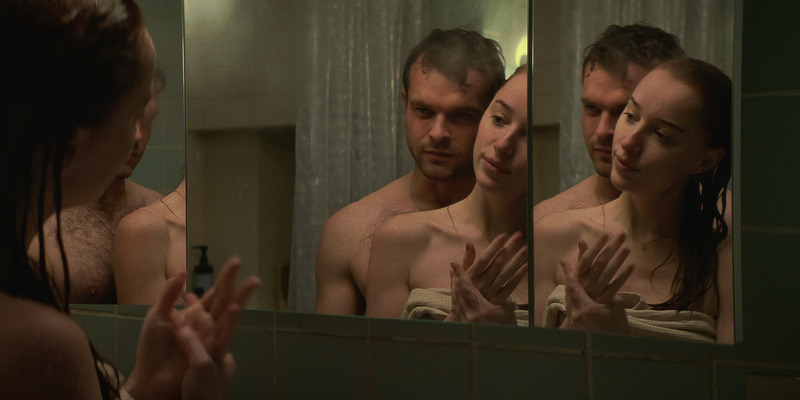
Review by
Eric Hillis
Directed by: Chloe Domont
Starring: Phoebe Dynevor, Alden Ehrenreich, Eddie Marsan, Sebastian de Souza, Rich
Sommer

Nobody wants to work in a toxic workplace but such spaces sure make for
juicy onscreen drama. How dull would
Glengarry Glen Ross
be if the real estate salesmen treated each other with courtesy and respect?
Perhaps the last industry where toxicity is still fostered and perhaps
encouraged is that of high finance. Debut writer/director
Chloe Domont's Fair Play is set in the sort of New York
hedge fund firm that I'm obliged to describe as cutthroat, where the boss
can call a female employee "a dumb fucking bitch" and get away with it
because she just cost him $50 million, and because she knows a hefty cheque
is on the way if she makes up for her error.

Working at said firm are analysts Luke (Alden Ehrenreich) and Emily
(Phoebe Dynevor). They're also lovers but have been keeping their
relationship secret as it's against company policy. Menstrual blood has been
used as a portent of doom in horror movies, and it serves the same purpose
here. Domont opens her film with Luke and Emily's bathroom sex at a wedding
cut short when the red mist descends, leaving their outfits bloodied and
forcing them to retreat out the window, Emily accepting Luke's marriage
proposal along the way.
When their project manager is fired, Emily is thrilled to hear talk of Luke
getting the position. To her surprise, her boss, Campbell (a terrifying
Eddie Marsan), gives her the promotion. Initially Luke does his best
to be supportive, but his male pride eats away at him. Attempts on Emily's
part to advance Luke's career backfire, because unlike the talented Emily
who worked her way into the role, Luke is a liability who acquired his job
through family connections.

Watching Luke and Emily's relationship untangle (quite literally, as the
tangled lovers' bodies we see early on give way to sleeping in separate
rooms) is fascinating. For someone who has never watched
Bridgerton, Dynevor is a revelation here. The role requires her to undergo a
significant change in personality, from supportive wife-to-be to ruthless
manager, and the young English star makes it look effortless with subtle
shifts in body language. Ehrenreich similarly goes from a sympathetic figure
who seems to be trying his best at first, only to succumb to an entitlement
whose flames are fanned by his obsession with a Jordan Peterson-esque
motivational speaker (Patrick Fischler in a subplot that could have
used a little more development).
With its cold corporate sheen, Fair Play might be mistaken
for a product of the late '80 or early '90s, a time when an adult oriented
water cooler movie like this would have been released in cinemas rather than
buried on Netflix. Despite being shot in Serbia on a relatively small
budget, the film never fails to convince us we're in the sort of glossy New
York we might find in an Adrian Lyne movie.

Creaks begin to appear in a final act that sees Luke do something that
seems contradictory to his male pride, and from that point the movie begins
to hammer home its theme, as though worried we couldn't have figured it out
by that point. I can't help feel there's a better version of this story
centred on a gay couple, thus avoiding the tired battle of the sexes shtick
it falls back on in the final act (the closing scene is a knock-off of a
George Cukor movie from 80 years ago, which tells you how played out this
sort of thing is at this point). Along with the gender divide, Luke and
Emily are from different social classes, but the movie seems barely
interested in exploring this particular facet. I guess in the current
climate haves vs have-nots isn't as enticing a card as girls against
boys.

Fair Play is on Netflix from
October 6th.

